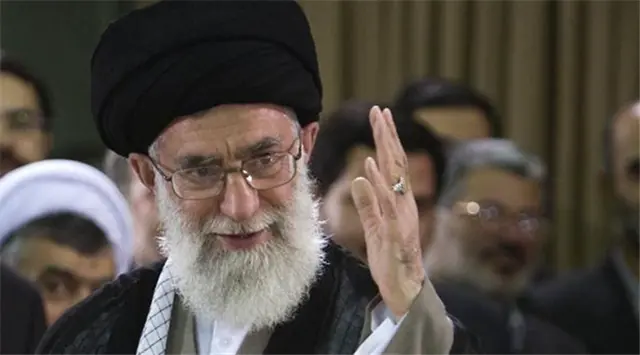Iran's new Majlis (parliament) opened on Saturday with top Iranian officials urging Majlis to play active roles in the domestic and international affairs.
Iran's Supreme Leader Ayatollah Ali Khamenei urged the incoming lawmakers to turn the parliament into a locus to serve the country and a stronghold against the excessive demands of arrogant powers.
Khamenei hailed the big turnout of the people in the February parliamentary elections as the "re-allegiance with Islamic republic" and called on the elected legislators to be vigilant in the face of regional and international challenges.
"Your revolutionary and legal duty is to make Majlis a stronghold against the plots, deceptions and excessive demands of the arrogant powers," Khamenei said in a message to the opening ceremony of the parliament.
"Realization of the resistant economy with all its requirements, and diligent efforts to expand and deepen the Islamic culture are two immediate priorities" that the new Majlis should consider," Khamenei said.
Resistance economy is part of Iran's policy which has been mapped by Khamenei. It relies on the domestic potentials, promotes knowledge-based high-tech industries, boosts domestic production and reduces dependence on imports. It also calls for privatization, further exports of goods and services as well as foreign investments.
Resistance economy also calls for policies to fight international and western pressures against the country over a number of issues.
On Saturday, Iranian President Hassan Rouhani also said that although Majlis and administration are different institutions, they are bound together in many areas when it comes to the interests of the country.
To tackle the problems of the society, "we are in need of interaction between the government and the Majlis, and we are committed to the laws passed by the parliament although they might be bitter in some areas," he said addressing the opening ceremony of the new parliament.
Rouhani also hailed the big turnout in the recent parliamentary elections, saying that all, from every walk of life, participated in the elections and re-endorsed the Islamic republic.
The president praised the role of the Iranian Supreme Leader and his guidance in the critical junctures, saying that "If there is a big problem in the country, we can overcome it through unity, solidarity, resistance and with the counsel of the supreme leader. "
Rouhani vowed further economic tranquillity and growth in the society, adding that "now, after three years (when he took the office), Iran's economy and market is no longer experiencing turmoil, and it has been replaced by tranquillity."
He said "we have now got rid of the dangerous two-digit inflation figure of 40 percent in the country, and the rate is currently anchored at 10 percent," pledging to reduce the inflation rate further in the current Iranian calendar year ending on March 20.
Rouhani said that his administration is planning to increase the economic growth this year to five percent from the current one percent growth rate.
The proper rate of economic growth and solving the issue of unemployment require attraction of foreign investments, and to this end interaction with the global community is a necessity, Rouhani stressed.
"If we want an eight-percent economic growth, we are in need of investments," he said, adding that "to this end, 30 to 50 billion U.S. dollars of foreign investments annually is a requirement."
The Iranian government will be committed to resistance economy while looking to the outer world for cooperation and interaction, he added.
The government and the new parliament can work jointly to implement the economic policies of the country, he said.
On Feb. 26. Iranians attended the polls for parliamentary elections, the results of which showed the gain of reformists although they could not seize the majority.
According to the Press TV, in February elections, reformists swept the polls, winning close to 42 percent of the ballots, followed by principlists with nearly 29 percent of the votes, and independents with 22.41 percent.
The remaining seats went to the religious minorities and candidates endorsed by both reformists and principlists. The lawmakers in Iran are elected for four years.
(APD)
 简体中文
简体中文

